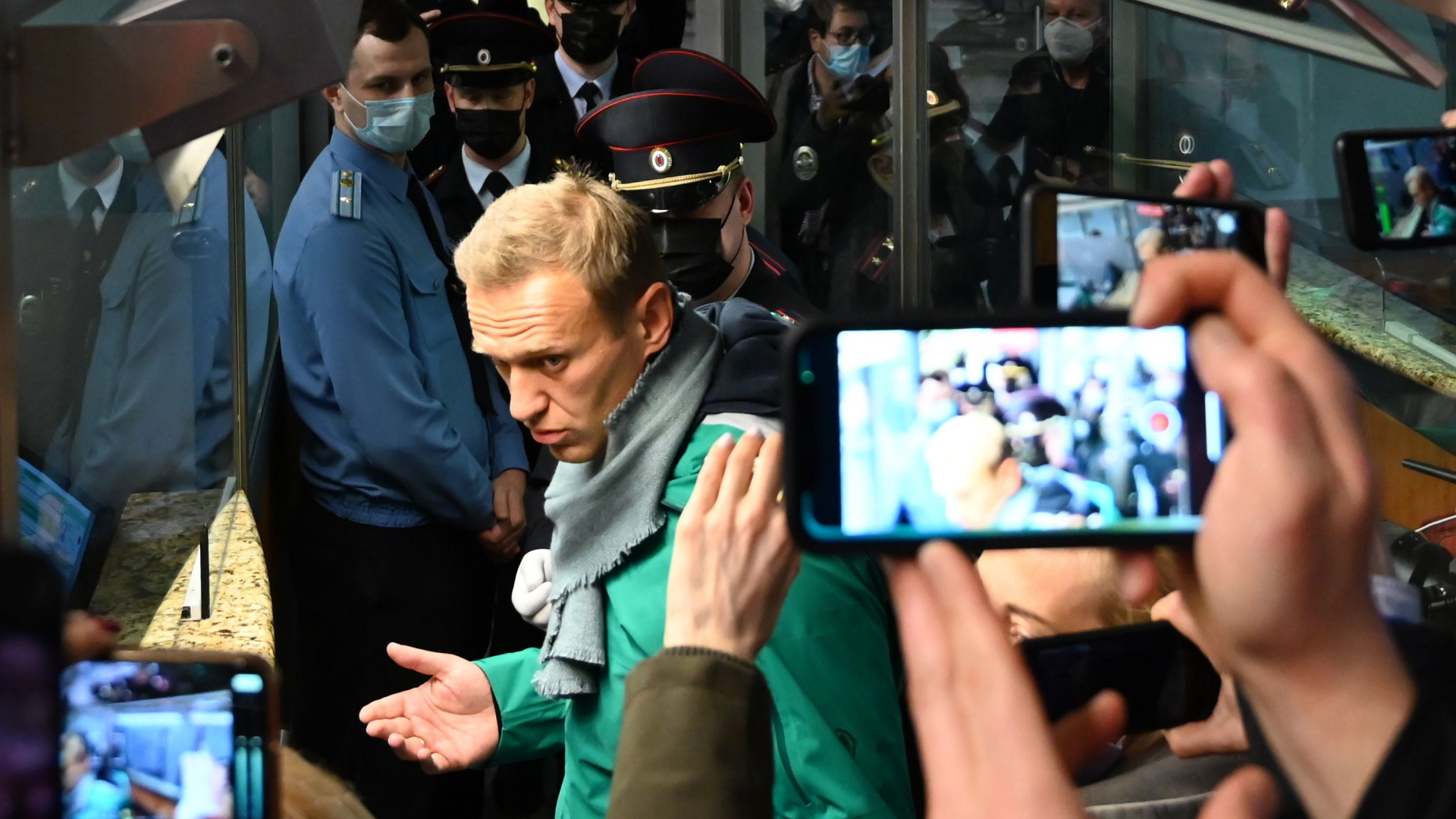The EU and the US have clearly condemned the arrest of the Kremlin critic. They demand an immediate release of the opponent of the regime. Navalny was taken into custody immediately after his return to Moscow.
After Alexei Navalny, who had returned to Moscow, was arrested, the pressure on Russia increased. Politicians from the EU, the USA and Germany called on the Russian authorities to release the 44-year-old immediately. The human rights organization Amnesty International classified the prominent opponent of President Vladimir Putin as a political prisoner of Russia.
Alexei Navalny was arrested at the airport immediately after landing in Moscow. The 44-year-old was led away at passport control, as can be seen on live images from the Reuters agency. According to confidants, he was taken to a nearby police station after his arrest at Moscow’s Sheremetyevo airport. His wife Julia Navalnaya, however, was let through.
Multiple arrests
The plane with Navalny, his wife and several employees on board took off from Berlin in the afternoon and landed in Moscow in the early evening. She was supposed to arrive at Wnukowo Airport, but had been rerouted at short notice. Numerous followers of Navalny had already gathered in Vnukowo, the actual destination. Hundreds of OMON anti-terror police and several prisoner transporters pulled up there.
According to the news agency dpa, there were several arrests, the emergency services pushed those waiting back. Among those arrested was therefore Navalny’s close colleague, the lawyer Lyubov Sobol.
The opposition leader had called on his supporters to meet him at the airport. The Moscow public prosecutor had warned against unauthorized rallies on the airport premises and threatened with consequences.
EU condemns arrest
The EU condemned the arrest of Navalny. It was “unacceptable” that Navalny was taken into custody immediately after his return to Russia, wrote EU Council President Charles Michel on Twitter. He demanded the “immediate release” of the opposition politician.
The EU foreign affairs representative Josep Borrell agreed to the demand. He called on the Russian authorities to “respect Navalny’s rights”. A “politicization” of the judiciary is unacceptable, wrote Borrell on Twitter. Vice Chancellor Olaf Scholz also criticized the imprisonment. The Baltic states of Estonia, Latvia and Lithuania demanded the immediate release of Navalny. The arrest was “completely unacceptable,” said a statement from the three EU and NATO countries bordering on Russia. Foreign Minister Sergei Lavrov is expected to speak on the case at a press conference this Monday.
Sharp criticism also came from the USA. The future security advisor to US President-elect Joe Biden, Jake Sullivan, announced on Twitter that Navalny should “be released immediately.” In addition, those responsible for Nawalny’s poisoning would have to be held accountable. “The Kremlin’s attacks on Mr Navalny are not just a violation of human rights, but an affront to the Russian people who want to make themselves heard.” The outgoing Secretary of State Mike Pompeo also strongly condemned the arrest.
Navalny is said to have violated probation requirements
Russia’s penitentiary system had put Navalny out to be wanted because he allegedly violated probation conditions in previous criminal proceedings while he was in Germany. However, he accepted this risk. Shortly before his start in the afternoon, he said that he is not afraid of anything: “What’s bad should happen to me in Russia?” He said. Karinna Moskalenko, a lawyer who has defended Navalny in the past, said that arrest would violate international law.
Navalny had recovered in Germany from an attack with the neurotoxin Novitschok, which was banned as a chemical weapon. Laboratories in several countries and the Organization for the Prohibition of Chemical Weapons (OPCW) had independently confirmed that Novichok had been used.
The attack was carried out on August 20 in the Siberian city of Tomsk. Navalny had repeatedly blamed Russian President Vladimir Putin and the domestic secret service FSB for the assassination attempt. The Kremlin chief rejects this. The EU had imposed sanctions on representatives of the Russian power apparatus for the internationally criticized crime.
Regardless of the danger to his life, Navalny declared several times that his place was in Russia and that he wanted to continue his fight against the “Putin system” there. There will be parliamentary elections in Russia in autumn.
Numerous commentators described Navalny’s decision to return to Russia as brave – and a political victory. “The fact that Navalny is not afraid of the worst possible scenario destroys the whole game of the Kremlin,” wrote political scientist Tatiana Stanovaya.


